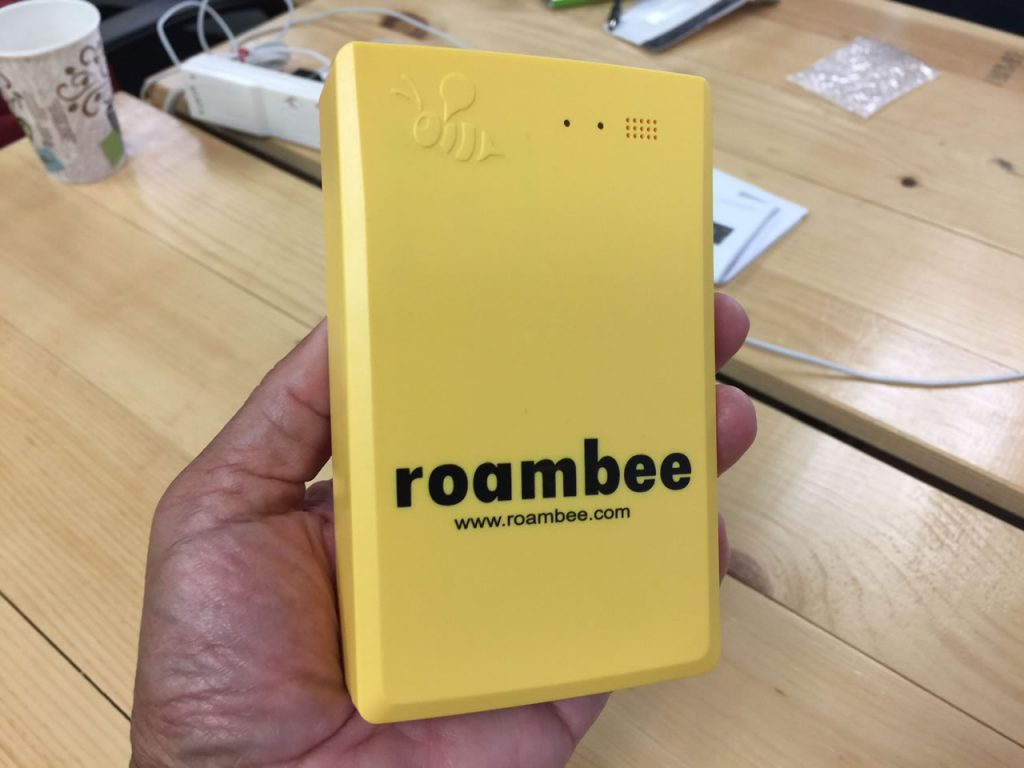The Problem With Stealing High-End Electronics (and Beer)

If you’re reading this on a smartphone, you have something valuable in your hands — and I’m not talking about the story you’re about to read. The device you’re holding weighs less than 200 grams (7 ounces) and retails for as much as $1,000. It’s not quite worth its weight in gold, but it’s worth more than its weight in silver, which it to say, it’s both valuable and easily portable.
As a result, it’s a good target for thieves. In fact, most high-end electronics are. They’re expensive when sold through proper channels and there’s a lot of demand for them. So if you’re able to steal a lot of tech, you can probably find buyers simply by offering a discount. All you need is an easy target and you’ll find yourself a nice, albeit illegal, payday.
That’s likely what a couple of thieves were thinking when they learned about a tech startup in their area. Called “Roambee,” the company probably didn’t have a lot of money for things like office security or the like. In June of 2017, they rather easily broke into Roambee’s offices. As Roambee’s co-founder, Vidya Subramanian, told the Verge, they simply “jimmied the lock” and gained intro into “the room where we charge our devices, and needless to say there’s computer equipment everywhere, so they thought it was a good place to steal stuff.” The robbers stole computers and boxes filled with what they probably thought were cellphone chargers. Then they grabbed a beer from Roambee’s office refrigerator to celebrate.
That was a mistake. When Roambee’s employees came back to the office the day after, they didn’t only find a lot of stuff missing — they also noticed a mess around the fridge. As the International Business Tribune explained, “one of [the thieves] grabbed a beer from the office refrigerator during the course of the robbery and cut themselves, leaving fingerprints and blood evidence throughout the crime scene.” If the police could somehow track down the burglars, they could easily link them to the crime. And tracking down the bad guys turned out to be really, really easy. Because the beer wasn’t the thieves’ only mistake — or even their major one. It turned out that they didn’t steal cellphone chargers.
They stole GPS trackers.
Roambee’s core product is a tracking device, one specifically designed to help track shipments in transit, seen above. Manufacturers can add a bee to their outgoing shipments to ensure that the cargo is going where it is supposed to go, and in a timely fashion. But unless you knew that beforehand (or looked up the URL printed on the device itself), you’d probably be none the wiser. And in any event, there’s no reason for the unsuspecting thief to worry about what the device actually does — most electronics are powered off when stored. But not in Roambee’s case. As Subramanian explained to the Mercury News, the Bees do not have an on/off switch as there’s no need for one: “It’s always on and it always tells you, as long as it’s got a battery, where it is in the world.”
And for our two thieves, that posed a big problem. Roambee’s employees called the police immediately after realizing that their office was broken into, and once they realized that 100 of their trackers were missing, they worked with police to get them back. They got results rather quickly: “The moment we realized they had a box of trackers, we went into recovery mode,” Subramanian told San Francisco TV station KRON4. “We notified the police and equipped them to track the devices, and in about 5 or 6 hours, it was done.” The criminals had stashed 98 of the trackers in a storage unit about 30 miles away, along with stolen property from a few other unsolved burglaries in the area. As for the other two trackers, the bad guys — still likely thinking they were cellphone chargers — kept two on them for personal use. The police were able to track them down as well.
Bonus fact: Sometimes, GPS tracking goes wrong — and unfortunately, we tend to follow these wrong directions more than we should. One extreme example came in 2013. Gizmodo explains: “67-year-old Sabine Moreau, started her journey in her home town of Hainault Erquelinnes, Belgium. She wanted to pick up a friend at a train station in Brussels, just 93 miles north from her point of origin. But instead, she turned on her GPS, which told her to drive south, taking her turn by turn all the way down to Zagreb, in Croatia. Instead of a couple hours in the car, she spent a couple days to cover the 900 miles that separates both points in Europe.” It’s unclear why Moreau didn’t catch on to the error sooner, nor how her friend got home from the Brussels train station.
From the Archives: Special Agent Grimsley: A story of a thief who wanted to steal incriminating evidence. And baseball.
